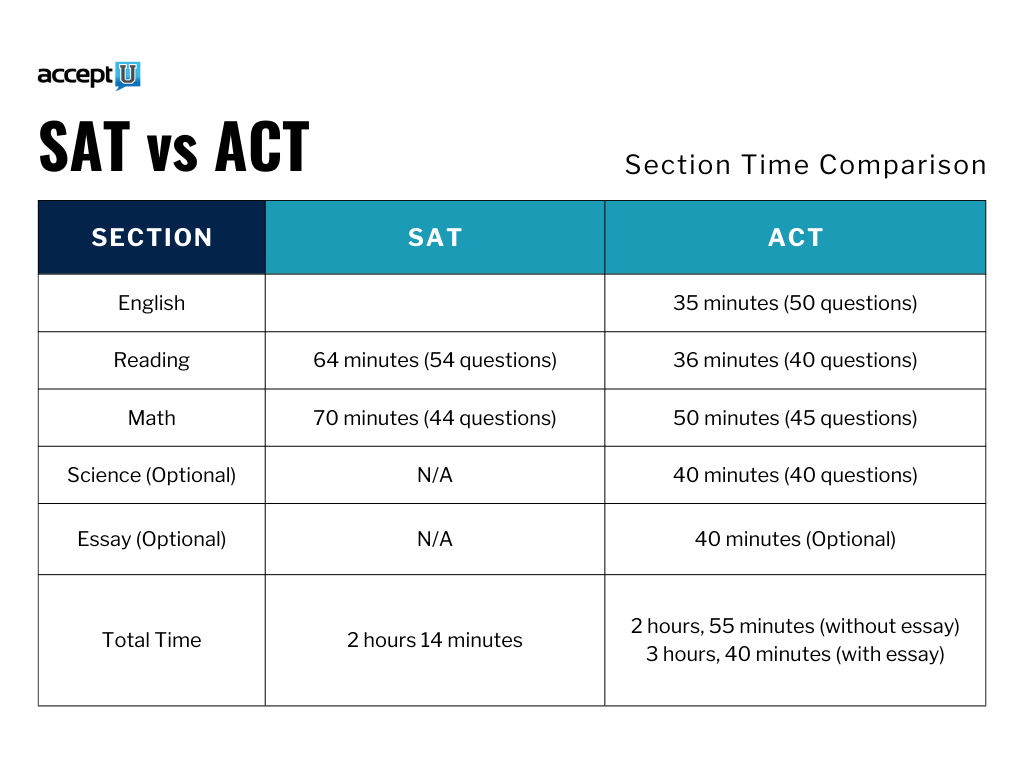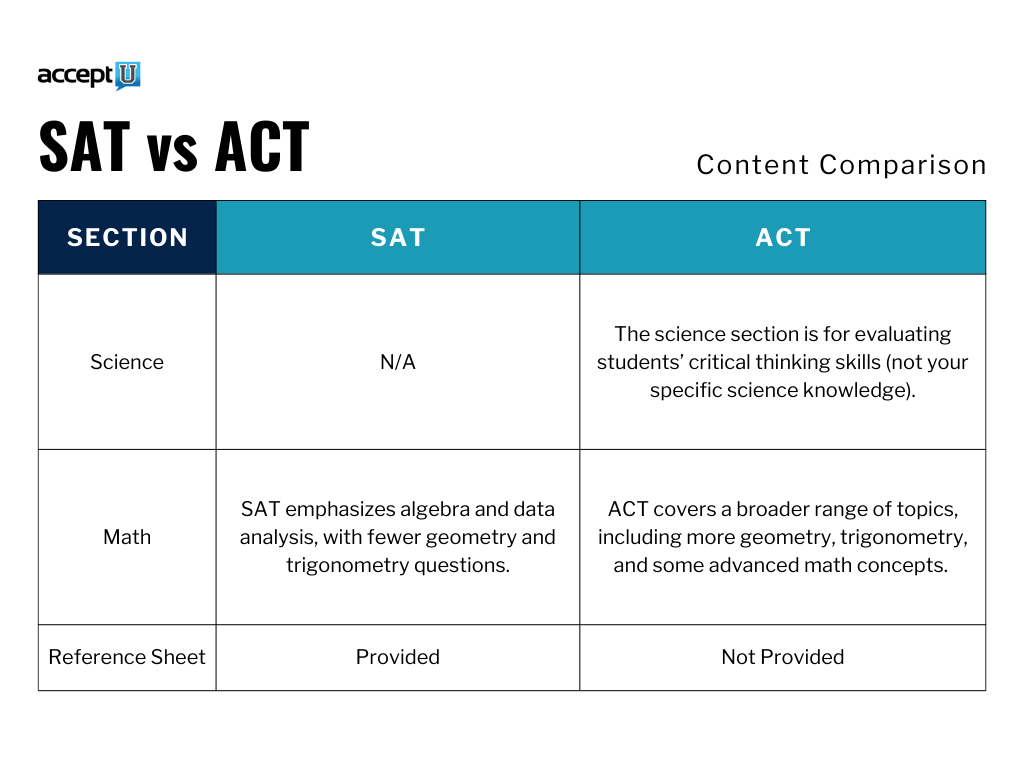Join us for Getting a Jumpstart on College Applications for ’26 on 4/23 at 8 pm EST. Space is limited, register today!
Join us for Getting a Jumpstart on College Applications for ’26 on 4/23 at 8 pm EST. Space is limited, register today!

Beginning in Fall 2024, top schools like Harvard, Brown, and Dartmouth have once again required applicants to submit standardized test scores. While both the SAT and ACT are widely accepted by colleges and universities, each test has distinct characteristics. This leads many students to ask: Which test should I take—the SAT or the ACT?
The SAT and ACT differ in structure, timing, and content. The SAT consists of two sections: Reading & Writing and Math, with a total score out of 1600. The ACT, on the other hand, includes four sections: English, Math, Reading, and Science (Optional starting in April 2025), each scored individually and averaged into a composite score out of 36.
While both tests assess critical thinking and problem-solving skills, one of the primary differences between the two tests is timing and pacing. The ACT allows less time per question, making it a better choice for students who can work quickly and efficiently under time constraints. The SAT provides more time per question, which benefits students who prefer a more methodical approach.
The SAT is probably better for you if you lose focus easily or you’re a slower standardized test-taker.
The ACT is definitely more of a time crunch, but its questions tend to be more straightforward.

Students often choose between the SAT and ACT based on one key factor: the ACT’s Science section. While the SAT doesn’t include a dedicated Science section, it incorporates scientific reasoning into its Reading and Math sections. Rather than testing specific science knowledge, the ACT Science section assesses a student’s ability to interpret data, analyze experiments, and apply scientific reasoning.
Note: Starting in April 2025, students in the United States who decide to take the ACT online will have the option to exclude the Science section.

Take the SAT if you prefer science to be incorporated within reading and math rather than as a separate section.
Take the ACT if you enjoy working with graphs, charts, and scientific concepts.
As of March 2024, the SAT has fully transitioned to a digital format, while the ACT remains primarily paper-based, with some locations offering an online version in the United States.
The digital SAT features a multistage adaptive design. Each test section (Reading and Writing, and Math) is divided into two equal-length, separately timed parts called modules. You’ll answer a set of questions in the first module before moving on to the next. This creates a different experience than the ACT’s fixed format.
Take the SAT if you are comfortable with digital testing and adaptive question formats.
Take the ACT if you prefer a traditional, fixed test format.
The SAT provides separate scores for Reading & Writing and Math (out of 800 each). The ACT provides a composite score (out of 36) based on the average of four section scores.
Many colleges accept superscoring, meaning they take the highest section scores from multiple test dates. If you plan to retake the test multiple times, checking whether your target colleges allow superscoring can help you strategically plan your testing.
Take the SAT if you want more time per question and prefer subject-focused scoring.
Take the ACT if you want a composite score based on all sections.
Take the SAT if:
Take the ACT if:
Ultimately, both the SAT and ACT serve the same purpose: to showcase your academic strengths and readiness for college. Colleges do not prefer one test over the other, so the choice should be based on your test-taking style, strengths, and confidence level in different subject areas.
When choosing between the two tests, consider taking diagnostic practice tests for both. Comparing your scores and evaluating which format feels more comfortable can be a helpful way to make a decision.
Need help preparing for the SAT or ACT? Contact us today for expert guidance to help you achieve your best score!

